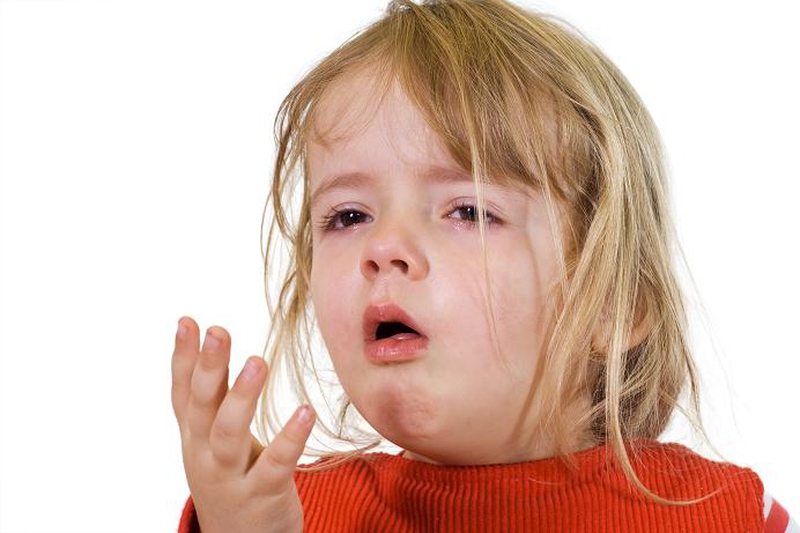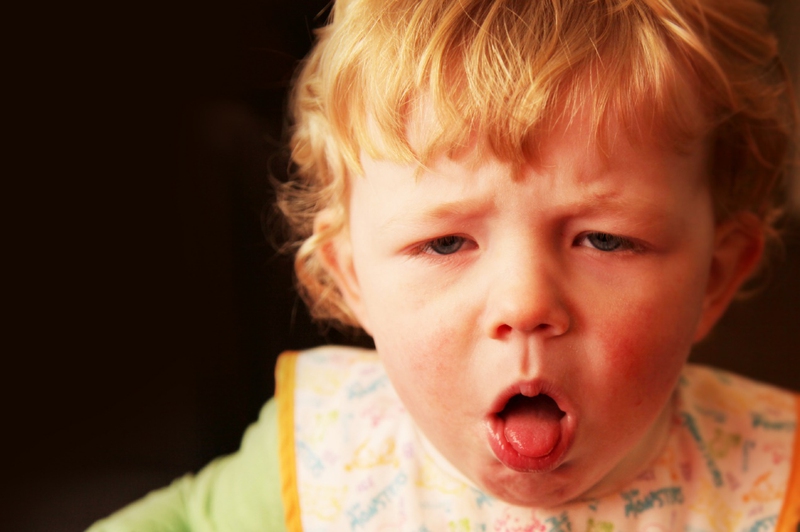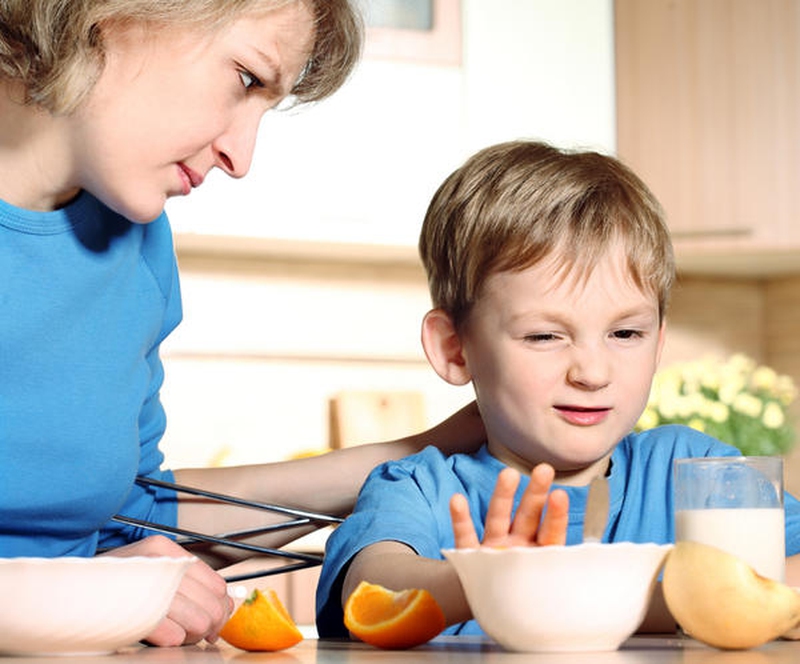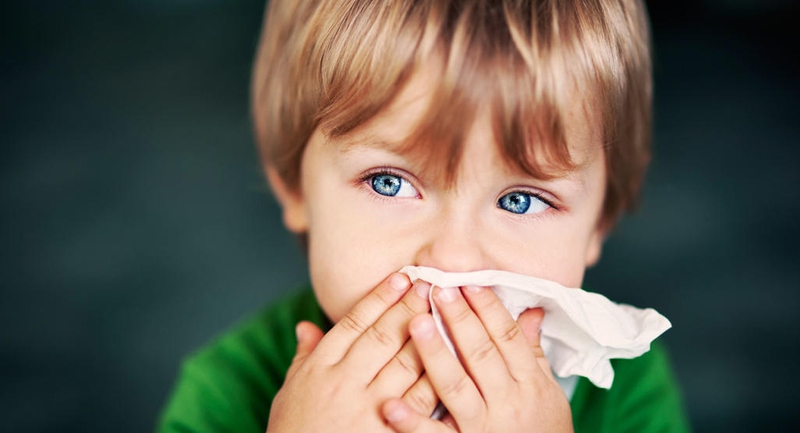Ejecting of matter from stomach, through mouth or sometimes from nose, is a natural way of body to discard any waste or harmful material. It’s a quite common symptom in toddlers with several possible reasons behind it. The process of vomiting causes a forceful contraction in the muscles of child’s stomach. Toddler throwing up mucus is quite a tricky situation especially for new moms. Let’s find out more about it.

What to Do If My Toddler Is Throwing Up Mucus?
Stomach Flu or Gastroenteritis
Gastroenteritis is the most common reason behind throwing up in toddlers. A virus named rotavirus is the main reason of it. Some other causes include bacterial tummy bug or some parasite that affect the baby’s stomach and may result in diarrhea. Other symptoms with vomiting include fever, chills, abdominal or muscular pain. It’s an infection that spreads from person to person contact or by intaking contaminated drinks or foods. This infection takes a few days in getting cured. And vomiting may take 24 hour to stop. Your toddler may end up with dehydration, so it is highly recommended to keep him hydrated with a lot of fluids intake.
GERD or Acid reflux
Many times, a toddler vomits immediately after eating something. It’s a quite fatiguing situation for moms and it happens because the toddler has a weak esophageal muscle. Gastro esophageal reflux disorder or acid reflux are the main causes of this intestinal infection. In this condition, the stomach retrieves the food and acid to esophagus and as a result you find your toddler throwing up mucus or spitting frequently. Other symptoms include gas, heartburn, cough, belly pain and trouble in eating. It’s a serious form of vomiting and parents should immediately consult the doctor for the best possible form of relief. Here are a few precautionary measures that should be taken by the parents.
Keep your baby in an upright position for about 30 minutes after feeding.
Raise the head of baby’s bassinet.
Bring some changes in his feeding plan.
Try some solid foods (not without doctor’s consent).
Motion Sickness
Yet another reason of vomiting among toddlers as well as adults. Riding a car, boat, theme park ride etc. causes vomiting and nausea. The possible reasons of it in toddlers may include iron deficiency or improper blood flow to brain. To deal with a situation like this, make sure your toddler is breathing fresh air. There is nothing serious about it. It’s just an occasional symptom. Consult doctor only if the vomiting persists.
Under-developed Digestive System
Sometimes when you don’t find any evident symptoms but the vomiting continues, a still-developing digestive system can be the reason. If the discharge or mucus seems to be cheesy, there is nothing to worry. The only signs to get medical aid are; an underweight toddler or the persistence of vomiting.
Food Allergies/Milk Intolerance
Sometimes vomiting is accompanied by the symptoms like loose stools, skin rashes, difficulty in breathing, itchy throat, swelling around eyes, lips, face and mouth. This could be the result of food allergy. Contact your pediatrician if you find your toddler in such condition.
Narrowing of the Intestines
It’s a medical condition that is present by birth. It is also known as projective vomiting or Hypertrophic pyloric stenosis. In it, the intestinal passage is so narrowed that toddler is barely capable of passing the food, and you experience your toddler throwing up mucus or vomiting forcefully within 15 to 30 minutes of getting fed. If something like that happens, head straight to your pediatrician.
Appendicitis
Toddler who is vomiting with other symptoms like fever, pain around the belly button and lack of appetite can possibly be the victim of appendicitis. It’s the inflammation of appendix. For a case like this, instant medical assistance is advised.
Intake of some Poisonous Food
Kids and toddlers are quite likely to fall victim of accidental poisoning. The main symptoms include vomiting with diarrhea, stomach pain and fever. Or if the whole family is vomiting, it’s possibly a case of food poisoning. It’s a situation where you should avoid any treatment on your own and opt for immediate medical assistance.
Strangulated Hernia
When your toddler vomits frequently and cries with pain, it is highly recommended to get him checked. It’s quite possible that he is suffering from strangulated hernia. Babies born with weak abdominal muscles are likely to face this problem.
Crying
Crying is one of the most common reasons of throwing up. Sometimes, toddlers crying for an extended period of time may have cough along with the spitting of mucus. There is nothing to worry about.
Congestion and Respiratory Infections
It’s one of the most common symptom of a bad cold. The congestion and mucus in respiratory tract makes it hard to breathe. In most of the cases, toddlers don’t know how to eject that phlegm and they swallow it. Getting drained into stomach, mucus may cause nausea and vomiting. The other symptoms of cold include a runny nose, fever and difficulty in breathing. Phlegm can prove quite irritating for toddlers, especially in the night. To relieve your baby’s discomfort, keep him hydrated. It helps thinning the phlegm. Using suction bulb, humidifier or vaporizers can help the baby in getting a sound sleep.
Other Moms’ Experiences
“It was a horrible experience when my 1.5-year-old son wasn’t able to sleep because of coughing and vomiting of mucus. It wasn’t just a bit of mucus but a handful of it each time. I could never imagine a toddler throwing up mucus in that much amount. Apparently, he didn’t have cold, I don’t know how all of it happened. On calling an after-hour nurse, I was told that it might be the reaction of his empty stomach meeting with post nasal drip. It was too late an hour for taking him to ER, so I kept on giving him a lot of water and chicken broth. It helped a lot in calming him down.”
“It’s very important to cough the mucus up rather than swallowing it. My little one never had the courage to do that. But one day she was having cold and she coughed so hard that a large amount of colorless mucus was ejected. And things became far better after spitting that out.”



View All Comments /Add Comment